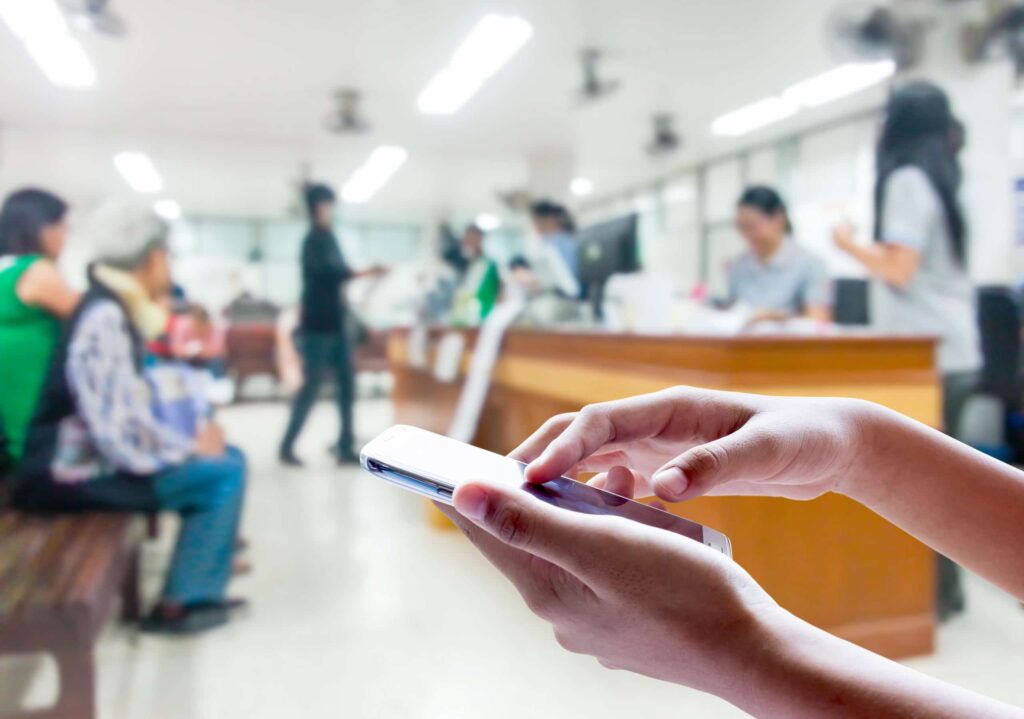The world is full of rules and regulations. Following speed limits, paying taxes, and not taking other people’s property are all laws by which we’re supposed to abide — or face punishment, either financially or criminally.
A key rule healthcare providers, payers, health information clearinghouses, and corresponding players must follow is keeping compliant with the Security Rule of the Health Insurance Portability and Accountability Act and its administrative, physical, and technical safeguards. Why? Primarily because they’re responsible for creating, receiving and transmitting protected health information (PHI).
PHI includes individually identifiable health information, such as demographic data, medical histories, test results, insurance information, and other data used to identify a patient or provide healthcare services or coverage. For a provider to send a text message with PHI to a patient’s cell phone, that patient must give his or her consent. Otherwise, the provider risks being in violation of the HIPAA Security Rule. That can be costly in more ways than one.
Data breaches are more likely to occur when the appropriate HIPAA guidelines aren’t followed. The HIPAA Security Rule refers to a breach as an acquisition, access, use or disclosure of PHI by an unauthorized individual. Four of the most common HIPAA violations have to do with PHI:
-
Insufficient ePHI (protected health information) access controls
-
Failure to use encryption or an equivalent measure to safeguard ePHI on portable devices
-
Impermissible disclosures of PHI
-
Improper disposal of PHI
HIPAA Security Rule regulations apply to all patient communications, including messages sent via text or phone and electronic health records (EHRs) stored in the healthcare facility, the cloud, or other locations. If your organization has not yet implemented a HIPAA-compliant phone system, here are five reasons I recommend you upgrade to one today.
1. Patients want to know their data is secure with you.
According to a recent survey from the American Medical Association, more than 92 percent of patients say privacy is a right, and 94 responded that companies that collect, store, analyze or use health data should be held accountable under the law. However, slightly more than half of the patients at private practices and about one-third of patients of large hospital networks said they don’t trust their healthcare providers to protect PHI and payment information.
Anything you can do to gain increased trust from your patients makes a difference in your ability to provide them with the highest level of care. Patients with higher trust in provider confidentiality have a significantly lower likelihood of reporting having ever withheld important health information. Increased patient-provider trust also influences patient management outcomes, enhances health promotion and prevention initiatives and reduces the need for monitoring.
2. Non-Compliance with HIPAA regulations can be extremely costly.
Cybercriminals typically target healthcare providers because PHI is a valuable commodity. Stolen PHI can be a dozen times more valuable on the black market than credit card information, ranging from $10 to $1,000 per record in online marketplaces.
Even as more healthcare entities are implementing stricter security measures, hackers are finding new ways to steal patient data. Last year, there was the second-highest number of HIPAA fines since the Office for Civil Rights (OCR) started enforcing compliance with HIPAA, with penalties totaling $5,982,150.
Hospitals are the most common violators of HIPAA privacy regulations, followed by private practices, outpatient facilities, pharmacies and health plans. Providers can potentially lose revenue, reputation, and patients, as most consumers lose trust quickly when a third-party organization compromises their personal data. In some cases, providers who fail to comply may also be barred from participation in Medicare billing processes.
3. Security in the cloud lowers the risks associated with handling PHI.
Those cyberattacks I previously mentioned can take a financial toll on a medical practice of any size, but they can be much more financially devastating for a small or emerging one. In fact, a major breach can even put an organization out of business.
Compared to server-based phone systems, those that utilize the cloud offer better cybersecurity and providers a cost-effective method for achieving and maintaining compliance with HIPAA and the Health Information Technology for Economic and Clinical Health (HITECH) Act.
Cloud-based phone systems use dozens of security frameworks and controls to give providers complete visibility of multiple locations from a secure and centralized access point. Why is this important? Because this way, data stays encrypted during uploads, downloads, and storage.
4. Not all phone systems are designed to meet strict encryption standards.
Providers regularly use both desktop and mobile devices for their communication needs. However, you might not know that HIPAA-compliant voicemail must be completely encrypted and stored in multiple geographies simultaneously to eliminate any single points of failure. Along with utilizing bi-directional authentication, it’s part of multiple layers of security within a HIPAA-compliant phone system aimed at preventing any attempt of unauthorized access and external threats.
5. You never know if — or when — you might be audited.
The word “audit” evokes at least a little fear in most individuals. In healthcare, the audit program is part of OCR’s overall health information privacy, security, and breach notification compliance. Most HIPAA audits occur in one of three common ways:
- A random selection for an audit by the OCR
- A complaint is filed to the OCR by an individual against your organization
- As a result of a breach occurring and then being self-reported to the OCR
Every covered entity and business associate is eligible for an audit. If you are audited, your business associate vendors also likely will be. If your audited business associate fails, so do you. Using a HIPAA-compliant phone service ensures you’re prepared for an audit.
Why You Should Rely on RingRx for Your Communication Needs
At RingRx, we urge you to take the reins on HIPAA compliance. Work only with vendors who have a HIPAA-first attitude and build systems specifically with compliance in mind.
Our healthcare VoIP phone system was built exclusively for healthcare practices and guarantees compliance. We achieve this compliance for you by following strict protocols in these areas: physical security of PHI, encryption, training, product security and password protection, auditing, and business associate agreements (BAAs).
We also offer a signed BAA upon starting your service, meaning you don’t have to worry about security when communicating with your patients. In addition, our easy-to-view auditing logs help you prepare by keeping track of which of your team members have played patient messages, voice messages, and more. Finally, RingRx’s goal is to help you update legacy phone systems and modernize your practice by utilizing apps that work with smartphones already in use at your facility — all while staying 100 percent HIPAA-compliant.
Start your free trial of RingRx today!





